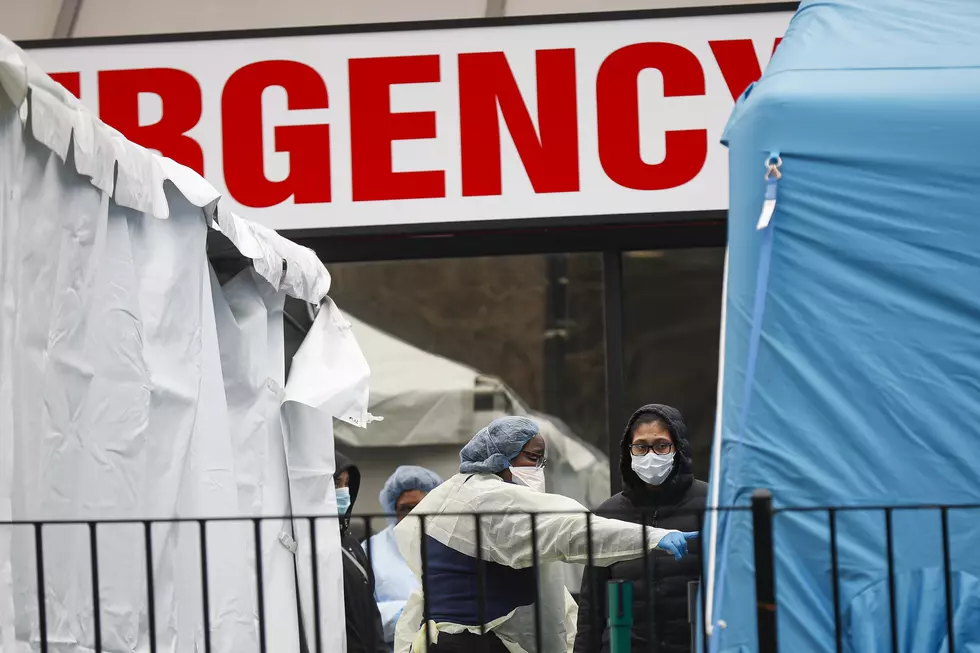
NJ undercounting COVID-19? Dramatic rise in ‘excess’ deaths
EDITOR'S NOTE: This article was updated days after it was first published to include the latest death data for April.
In January, just under 6,700 people died in New Jersey. That was a low number compared to recent years.
In February, another 6,000 residents died. Again, a relatively low number compared with previous February months on record.
But then in March, monthly deaths shot up to 7,600 — the most of any month in recent years and 955 more than last March.
And by April 24, the most recent day for which death records are available, deaths had skyrocketed to 11,029. By the end of the month, 14,220 residents had died — more than double the amount who died 12 months earlier.
The sobering trend owing in large part to the coronavirus as well as other deaths related to the pandemic's impact on health care and society.
And while state and local governments have faced some criticism and skepticism over whether the reaction to the pandemic has been overblown, the numbers may indicate that New Jersey and other states could be undercounting the deaths from COVID-19, some experts say.
The figures from the state Department of Health and the Centers for Disease and Control and prevention come as more governors begin planning to ease stay-at-home orders that have shuttered many retail, hospitality, recreational and service businesses.
The March and April death totals show that New Jersey recorded 9,269 more deaths than the same months last year. That figure is less than the 7,742 COVID-19 deaths that had been reported on May 2.
But the state's COVID-19 death count lags by several days as health officials investigate the cause of death for each fatality. On Thursday, New Jersey reported 460 new deaths, the biggest one-day jump on record and more than the 306 that New York state reported Thursday.
Dr. Ed Lifshitz, medical director of the state Communicable Disease Service, said that the jump was a result of COVID-19 test results being returned long after people had died and does not mean that deaths were now spiking.
That peak, Health Commissioner Judith Persichilli said Thursday, was likely reached on April 13 and 14, when New Jersey hospitals were treating 8,200 patients with COVID-19. Since then, hospitalizations have declined to 6,317 — the lowest since April 2. The number of patients needing intensive care and life support, meanwhile, appears to have flattened, she said.
Hospitals in North Jersey have begun to report vacancies in their intensive care units following weeks of reaching capacity. This week, however, it was the turn of hospitals in Central Jersey to feel the pinch. Cases continue to rise in South Jersey.
Data released this week by the CDC shows that the country has seen 66,000 more deaths this year.
A Yale School of Public Health study published by the Washington Post this week found "unusually high mortality" across the country, which could mean that the true COVID-19 death toll may be far higher than what many states have been reporting.
Medical examiners say the causes of these excess deaths are not all related to COVID-19, although the respiratory disease is the leading cause. Some of the excess deaths were a result of drug overdoses and household accidents, as well as people suffering heart attacks and strokes who resist going to the hospital because of virus fears.
Hospitals in New Jersey this week began advising people not to forgo visits to the emergency room. Persichilli also acknowledged this concern this week.
"If you're experiencing signs and symptoms that could be a heart attack, or a stroke, or unrelenting abdominal or back pain, you should not delay in seeking care," Persichilli said. "Call 911 and go to your nearest emergency room."
A spokeswoman for the state Department of Health on Wednesday said it could take weeks for health officials to know what caused the excess deaths in March and April.
The biggest spikes in deaths were in counties that have reported the most COVID-19 cases and deaths. Bergen County had reported 1,484 death from all causes as of April 24 and 1,136 COVID-19 deaths as of April 29. Last April, the county had 584 deaths from all causes.
Essex County on April 24 reported 1,206 deaths from all causes. It's COVID-19 death toll was 1,186 by April 29. Last April, Essex had 472 deaths from all causes.
Normally, the leading causes of death in New Jersey are heart disease, which killed 19,000 in 2018, and cancer, which killed 16,000.
With eight months left in the year, COVID-19 has so far killed 7,228 residents of New Jersey, already making it the third-leading cause of death.
The Associated Press contributed to this report
Tips for self-care during pandemic
Sergio Bichao is deputy digital editor at New Jersey 101.5. Send him news tips: Call 609-359-5348 or email sergio.bichao@townsquaremedia.com.
More From New Jersey 101.5 FM









